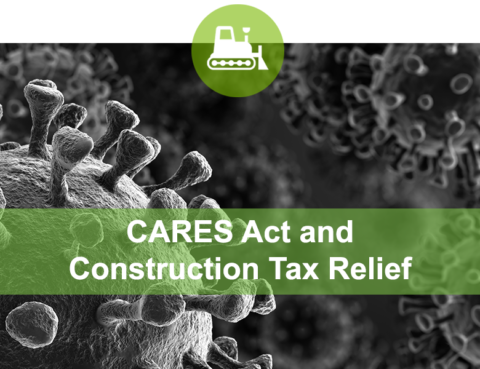
Construction companies continue to face a serious skilled labor shortage. Although demand for qualified workers has been increasing steadily over the last several years, the impact of the Great Recession continues to limit the supply of candidates to fill those jobs — yes, even all these years later. And the short- and long-term effects of…

Managing construction project scope often looks solid on paper. But put boots and equipment on the ground and suddenly — or, more often, gradually — the job can go soggy as additional, unanticipated work seeps into other tasks. Sometimes you can get paid for this additional work if the owner will sign off on a…

True to their name, recently created qualified opportunity zones (QOZs) may raise attractive opportunities for contractors. But, before taking advantage, familiarize yourself with the requirements of these projects and be on guard against their potential risks. How QOZs Work QOZs were established under the Tax Cuts and Jobs Act. They’re designed to attract investment in…

A single construction dispute can turn a profitable job into a loss; multiple ones can put a contractor out of business. Here are seven strategies for avoiding them: 1. Draft contracts carefully. Ambiguous contract language is probably the most common cause of legal wrangles for contractors. Pay close attention to provisions that affect your right…

The federal government’s response to the novel coronavirus (COVID-19) has included many tax law changes. To simplify matters, let’s look at three issues that contractors should keep an eye on in light of the Coronavirus Aid, Relief, and Economic Security Act (CARES Act). Maintaining Payroll As of this writing, some construction work was continuing, but…

Late last year, the Financial Accounting Standards Board granted a one-year reprieve from new lease accounting rules to private companies that comply with Generally Accepted Accounting Principles (GAAP). This means that GAAP-compliant construction businesses with a calendar year end now have until 2021 to implement Accounting Standards Codification (ASC) Topic 842, Leases. (Contractors with a…

Determining the market value of your construction company may be necessary or desirable for many reasons. Examples include a sale or merger, financing, succession planning, tax and estate planning, insurance claims, divorce, or setting up an employee stock ownership plan. Whatever the reason, it’s important to consult an experienced valuation professional. Some contractors use rules…

Would you recognize an indirect cost if you saw one? Indirect costs can have a substantial impact on a construction company’s financial picture and bottom line. But they’re not always the easiest things to “see.” Let’s zoom in to bring indirect costs better into focus. Viewing the numbers It helps to first define project costs…

Benchmarking is the process of comparing one’s business processes and performance metrics with your own historical data or those of other, similar companies. Through this process, you can identify the “best in class” business practices in the construction industry, or in another industry where similar processes exist, and compare these approaches and results with your own. In doing so, you’ll hopefully…

Americans from Tax Hikes Act of 2015 made the research credit permanent after decades of short-term renewals. It also made two important changes that expand the benefits of the credit for smaller businesses. First, beginning in 2016, the act allows businesses with average gross receipts for the previous three years of $50 million or less to claim the…
